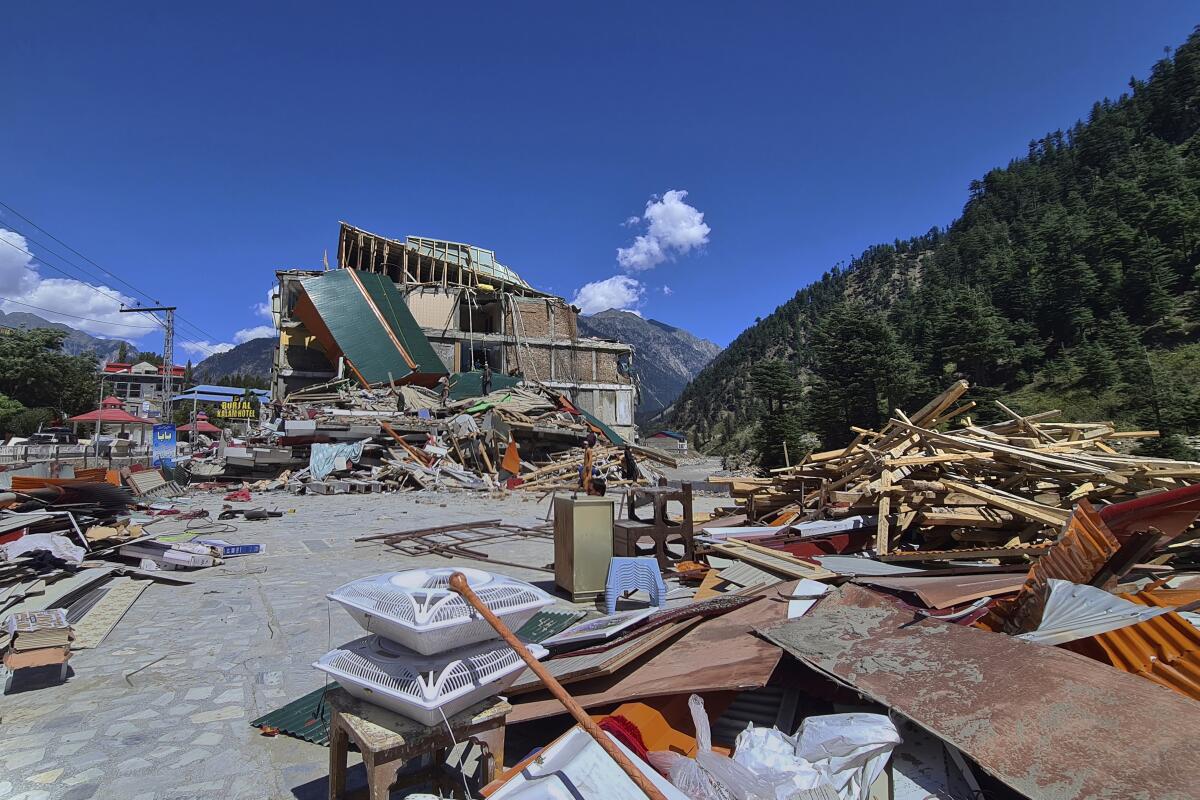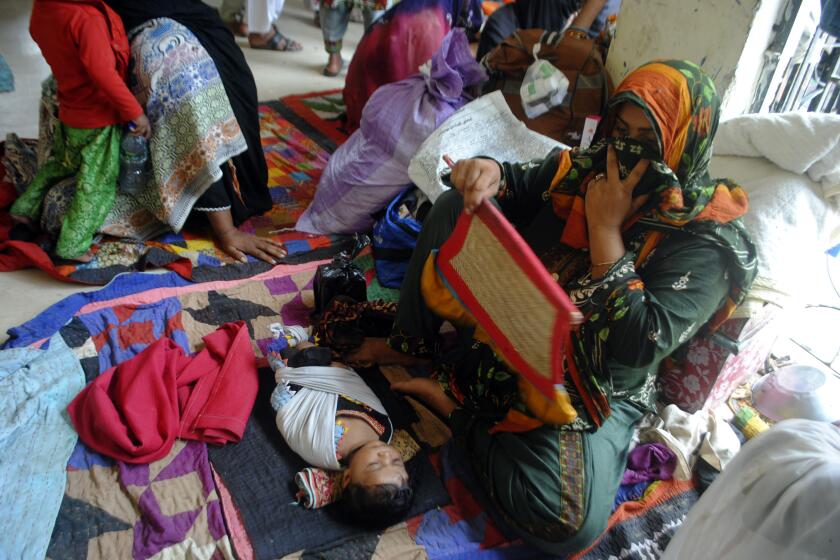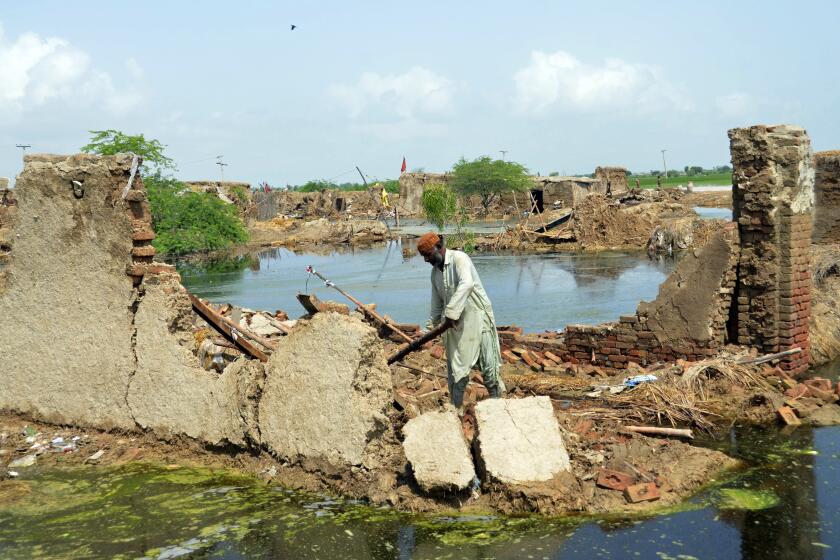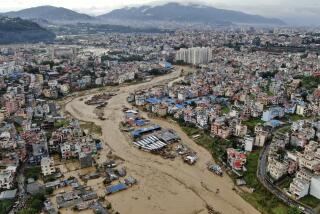U.N. seeks $160 million in emergency aid for Pakistan floods

ISLAMABAD, Pakistan — The United Nations and Pakistan issued an appeal Tuesday for $160 million in emergency funding to help millions affected by record-breaking floods that have killed more than 1,160 people since mid-June.
U.N. Secretary-General Antonio Guterres said Pakistan’s flooding, caused by weeks of unprecedented monsoon rains, were a signal to the world to step up action against climate change.
“Let’s stop sleepwalking toward the destruction of our planet by climate change,” he said in a video message to an Islamabad ceremony launching the funding appeal. “Today, it’s Pakistan. Tomorrow, it could be your country.”
Guterres will visit Pakistan on Sept. 9 and meet with flood victims to express solidarity with them, according to a statement released by his office. It said Guterres will also “witness how we are working, in collaboration with our humanitarian partners, to support the government’s relief efforts and provide assistance to millions of people.”
More than 33 million people, or 1 in 7 Pakistanis, have been affected by the catastrophic flooding, which has devastated a country already trying to revive a struggling economy. More than 1 million homes have been damaged or destroyed in the past 2½ months, displacing millions of people. Around half a million of those displaced are living in organized camps, while others have had to find their own shelter.
Prime Minister Shahbaz Sharif said the floods badly damaged crops, and his government was considering importing wheat to avoid any shortage of food.
The Pakistani military and volunteers are desperately trying to evacuate many thousands of people stranded by flooding driven by ‘monster monsoons.’
Sharif said Pakistan was witnessing the worst flooding in its history and any inadvertent delay by the international community in helping victims “will be devastating for the people of Pakistan.”
He promised that funds from the international community would be spent in a transparent manner and would reach those in need. “This is my commitment,” he told reporters, saying his country is “facing the toughest moment of its history.”
Pakistan says it has already received aid from some countries, and more was coming.
On Tuesday, the U.S. government said it would provide $30 million in assistance to help victims of the flood through the U.S. Agency for International Development. It said the United States is deeply saddened by the devastating loss of life and livelihoods throughout Pakistan.
According to initial government estimates, the flooding has caused $10 billion in damage to the economy.
“It is a preliminary estimate likely to be far greater,” Planning Minister Ahsan Iqbal told the Associated Press. More than 243 bridges and more than 3,100 miles of road have been damaged.
Pakistan officials say deaths from flooding have topped 1,000 since mid-June and the climate minister called the monsoon season ‘a serious climate catastrophe.’
Although rains stopped three days ago, large swaths of the country remain underwater, and the main rivers — the Indus and the Swat — are still swollen. The National Disaster Management Authority on Tuesday warned emergency services agencies to be on maximum alert, saying floodwaters over the next 24 hours could cause further damage.
Rescuers continued to evacuate stranded people from submerged villages to safer ground. Makeshift tent camps have sprung up along highways.
Meteorologists have warned of more rains in coming weeks.
“The situation is likely to deteriorate even further as heavy rains continue over areas already inundated by more than two months of storms and flooding. For us, this is no less than a national emergency,” Pakistani Foreign Minister Bilawal Bhutto-Zardari said Tuesday, urging the international community to give generously to the U.N. appeal.
“Since mid-June, in fact, Pakistan has been battling one of the most severe, totally anomalous cycles of torrential monsoon weather,” he said. Rainfall during that time was three times the average, and up to six times higher in some areas, he said.
More to Read
Sign up for Essential California
The most important California stories and recommendations in your inbox every morning.
You may occasionally receive promotional content from the Los Angeles Times.












